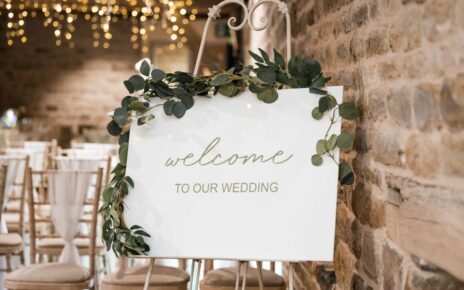I’ll never forget the night before I left the Za’atari refugee camp in Jordan.
It was 2018 and I’d been there with my family – including my mum, brother, three sisters, two uncles and four aunties – for six years after fleeing Syria.
That night, friends and family came to take me and my brother, Waseem, to the gate of the camp. We sat behind them on their bikes, riding through the camp in the moonlight and singing Ma Salama, which means ‘goodbye’ or ‘peace be with you’.
But it was bittersweet because we had to leave the rest of our family behind. That’s because Waseem and I were prioritised for the UK Syrian Resettlement Programme due to our disabilities – we were born with phocomelia, a rare congenital disorder involving malformation of the limbs.
Unfortunately, the rest of my family are still there now. We haven’t seen them for five years and it’s hard to describe how difficult and upsetting that is because my mum has always been there for me.
I grew up in a beautiful village called Bayt Araa in the Syrian mountains. There were eight of us in the house – my three sisters, two brothers, my mum and dad. Oh, and six dogs. My dad was a farmer so we had lots of animals.
Growing up with my disability was tough though. I only liked to go out at night because no one could see my hands or legs in the dark. In the daytime, people would laugh and say ‘Penguin! Look, he walks like a penguin!’
They would also say to my dad: ‘You need to marry again because your children were born with a disability’. Even my teacher asked why I bothered coming to school.
Then our whole life turned upside down in 2011 when I was 17. Our village was a safe place to get to Jordan from Syria, so it was bombed.
At first, the bombs weren’t an immediate threat, but by 2012, they got very close to our house. After a particularly loud one, my dad shouted: ‘Go to the caves!’
There was no time to pack anything, we just had to run. I wasn’t even wearing any shoes and it was very painful. I couldn’t see if my feet were bleeding because it was pitch black.
It was a nightmare. All the animals had to be let loose too, including my precious dogs.
So 12 families – about 70 people – crowded inside a nearby cave. We heard tanks rumbling and you could feel it through the ground. It was like a horror movie. I couldn’t hear anything except the bombs and children screaming.
There was no going back to our homes for my whole family and most of our village. So we crossed into Jordan in big trucks. We left our village at 7am and didn’t arrive at the camp until after midnight.
We had seen the refugee camps in Jordan on the TV but we never thought it would happen to us. In fact, it was the first time I’d been in a tent.
Life in the Za’atari camp sometimes felt like being in prison because you couldn’t go anywhere without permission. There was also no transport and the ground was uneven, so it was very difficult for me to get around.
On top of that, it was so hot and dusty that it was hard to breathe and there was nothing green.
It was in Za’atari that I discovered my passion for theatre. I met a British woman called Arabella who was working for a Spanish NGO.
We put on shows like one called ‘I Can’, which was an aspirational show with disabled young people in the refugee camp. Another was called ‘Window of Hope’ about life in the camp, which I performed in and played the tabla (a drum). I would teach and support disabled young people in a theatre group, too.
I started applying for resettlement in 2015 – to the UK, Canada and the US. The rest of my family applied too, but only Waseem and I eventually got interviews to come to the former.
After six years in the camp, we were desperate to leave. We had been forced to flee our village when I was in high school, and I’d missed my exams so I wanted to continue my education.
In 2018, I got a phone call to say my application to go to the UK had been accepted – along with Waseem’s too. I was surprised because I had applied three times before, but I didn’t give up.
I was so sad that I had to leave my family behind – especially my mum – that I can’t really put it into words. We had two weeks to say goodbye; everyone was glad for me and Waseem but there were lots of tears.
When I left, I didn’t take much with me, just a few books to learn English. We flew to the UK and it was our first time on a plane.
I came to Gateshead in 2018 and now it’s my home. I could only speak a few words of English when I arrived and I certainly couldn’t speak any Geordie, but after a few months I started to understand the accent.
Waseem and I supported each other, but we still felt alone without the rest of our family. We had always all been together, and now it was just the two of us.
When I first arrived in the UK, I thought that the reaction to my disability would be different. That I could walk the way I do and nobody would look at me because people are more educated here.
But they still laugh. Everyday, they look – it’s just more hidden. Teenagers secretly film me and take pictures when I’m waiting for the bus. I know they’re doing it so I pretend I’m a celebrity and strike a pose.
Despite that, my life is generally good. I feel more confident now that I can speak English, and I can go anywhere I like. I’m always busy.
In the summer of 2018, our resettlement caseworker put us in touch with Curious Monkey, which is a theatre company that runs a project called ‘Arriving’ for people seeking sanctuary in the North East of England. I didn’t speak much English at the time so I was just smiling and nodding, but I threw myself into the workshops.
More from Platform
Platform is the home of Metro.co.uk’s first-person and opinion pieces, devoted to giving a platform to underheard and underrepresented voices in the media.
Find some of our best reads of the week below:
Sex columnist Almara Abgarian offers these handy tips to people who have no idea how to please a woman.
This is how to save thousands of pounds by making one small lifestyle change, according to Zara Canfield.
What do you do if your mum thinks she’s invited to your hen do, but you don’t actually want her there? Columnist Alison Rios McCrone has the answer.
Rape survivor Ellie Wilson recalls what it was like for jury members not to believe her – even though she’d recorded a confession on tape.
We were using our faces and body language – which I loved because I love physical theatre – but I had stories to tell and I wanted to be able to tell them in English.
The day I first met Curious Monkey’s founder and artistic director, Amy Golding, I said, ‘I want to make a show!’ She laughed and replied, ‘OK, we’ve only just met but let’s see how it goes’. Five years later, we are about to go on a national tour with my show, Penguin – which is the story of my journey.
As a disabled man, I want to show the audience what I can do and that I am able to achieve whatever I want. I love music, so there’s lots of dancing and movement in the production.
I hope people come away thinking: ‘Don’t give up, just keep trying’.
My only regret is that my family won’t get to see the show, but I will try to send some video footage to them. I hope one day that we can all be together again, but it’s not safe for me there.
I hope that my mum in particular will be able to join us in the UK someday because I worry for her health. She keeps applying but we can’t find out why she doesn’t get accepted.
I have big ambitions for the future. After the war, there will be lots of children in Syria with disabilities. I would like to set up a charity to support them and to show them that they can do things.
By sharing my story, I hope to inspire and motivate others. And maybe I’ll get a dog.
But for now, I just want to get on stage and tell my story.
Penguin premieres at Live Theatre in Newcastle in September before touring to London, Manchester, Leeds, Sheffield and Washington until 30 November. You can find out more about the show on the Curious Monkey website here.
Immigration Nation
Immigration Nation is a series that aims to destigmatise the word ‘immigrant’ and explore the powerful first-person stories of people who’ve arrived in the UK – and called it home. If you have a story you’d like to share, email [email protected]
Source: Read Full Article




